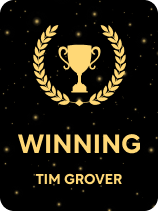

This article is an excerpt from the Shortform book guide to "Winning" by Jack Welch and Suzy Welch. Shortform has the world's best summaries and analyses of books you should be reading.
Like this article? Sign up for a free trial here.
Do your work and personal life overlap too much? What are tips for upholding a work-life balance?
Balancing life and work can be a difficult task if your job asks a lot from you. However, finding that balance is essential to furthering your career and being an outstanding employee.
Check out how to have a work-life balance and keep your priorities in line.
Handling Work-Life Balance
There’s no perfect way to balance work and your social life, but if you want to advance your career, you’ll have to make some sacrifices. How much you’re willing to sacrifice is up to you, but Winning by Jack Welch says that to make the best decision for yourself, there are a few things you need to understand about figuring out how to have a work-life balance:
You and your boss have different priorities: Your boss’s priority is to get as much value out of you as possible. This doesn’t mean most bosses expect you to give everything to the company, but they’ll take as much as they can get. A boss gets paid to keep their employees productive, and most bosses will be willing to work with you on work-life balance if you’ve proven your value to the company and can remain productive.
(Shortform note: Though you should understand that you and your boss don’t have the same priorities and that you have to make sacrifices for your career, there are ways to deal with a boss you feel is too demanding. First, be transparent: Have a personal conversation with your boss, letting them know you’re committed to work but also have other responsibilities. Second, empathize: Show that you understand the pressure they’re under to perform and ask what their biggest concerns are. This may help you better understand the work they value the most. Finally, communicate: Show your boss that you’re getting the work done. Check in as often as you can and let them see what you’re working on.)
Figuring out how to balance work and life is ultimately up to you: Welch says that some bosses are more accommodating than others, but ultimately, it’s your job to figure out how to balance work and life. A boss can help with scheduling or help you be more efficient, but you’re the one who has to implement that advice. You have to decide what your values are and what you need to do to make them a reality. If that means quitting a job that you feel demands too much of your time, so be it, but only you can make that decision.
(Shortform note: Welch says that you should clarify your values so you can balance work and life appropriately, but how do you choose your values? In Dare to Lead, Brené Brown recommends narrowing it down to your two most important values, as trying to live by too many values can make it more difficult to commit to them. Since determining your values is deeply personal and something only you can do for yourself, think long and hard about what you truly value, not what you think you should value or what you want others to think of you. If narrowing it down to two values proves difficult, try making a list of 10 values and trimming from there.)
Once you understand your boss’s priorities and your own values, here are two things you can do to best achieve your desired work-life balance:
Keep work and life separate: However you prioritize your work and life, Welch says it’s important to remain focused on the task at hand and the people you’re with. When you’re at work, give it your full attention. Don’t plan your family vacation when you’re supposed to be working or text your spouse during a meeting. Similarly, try to limit the amount of time you work when you’re with family and friends. Don’t check your emails while playing with your kids or constantly talk business on a night out with friends.
(Shortform note: In Radical Candor, Kim Scott says that instead of viewing work and life separately, work-life balance is about finding a way to integrate these two parts of your life in an enriching way. It’s okay, for example, to practice self-care at home so that you can perform better at work. Likewise, it’s okay to talk about work outside the office if you want to. Scott recommends trying to view work and life not as two aspects of your identity competing against one another, but as different parts of your whole self that complement each other.)
Set boundaries: Once you’ve determined your priorities, Welch says you must be able to say no to requests that disrupt your chosen work-life balance. Welch points out that saying ‘no’ can be hard for many career-oriented people, as they think being an agreeable person shows they’re willing to work hard. But if you say yes too often, achieving the goals you set for yourself becomes nearly impossible.
(Shortform note: In Essentialism, Greg McKeown provides some guidelines on how to deal with people who ignore your boundaries: 1) Don’t solve other people’s problems. It’s okay to help someone occasionally, but if you constantly solve their problems you’re cutting into your own time and enabling their behavior. 2) Create an agreement. Clarify to coworkers what you will help them with and won’t you won’t help them with. This way, they’ll ask for help only when it falls within your boundaries, and you won’t constantly be telling them no.)

———End of Preview———
Like what you just read? Read the rest of the world's best book summary and analysis of Jack Welch and Suzy Welch's "Winning" at Shortform.
Here's what you'll find in our full Winning summary:
- Business advice from one of the best-known corporate leaders in the US
- How to win the business world, whether you own a business or work for one
- Advice such as how to hire effectively and how to adapt your company






